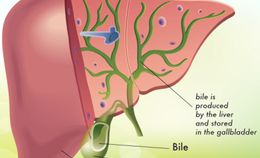The Journey of Digestion
This is the first in a series on Digestion and Gut Health. The health of the gut is at the core of health – period! There is so much talk about our brain & heart, and the importance of keeping them healthy, yet another equally (if not more) important system is most often overlooked. When you look at all that takes place from the moment you bite into that delicious morsel of food, to the moment it leaves your body (as waste) and everything in between, if the digestive system is not healthy, it will impact your heart & brain health. The phrase “you are what you eat” doesn’t say it all – it really comes down to “you are what your body digests and absorbs”. You can have the best & healthiest diet and still not absorb all the nutrients you need from those foods.
Let’s take a journey – a journey to discover what takes place when you take that bite mentioned earlier. So much is happening in the mouth that most of us do not realize, and how important it is to simply chew your food.
There are two processes that take place in the mouth – mechanical & chemical. The mechanical part is the actual chewing that takes place as it breaks down the food into liquid form, or smaller pieces. Chemically, we have three different pairs of saliva glands: parotid, sublingual, and submandibular, which lubricate the food as we chew. Within the saliva, there is an enzyme called amylase that assists in the chemical breakdown of carbohydrates.
This reminds me, the chemical process actually starts before that first bite of food. The salivary glands are actually triggered by the brain – the smell of that delicious meal baking in the oven, or on the grill, or as you walk by a restaurant. Even the thought or memory of mother’s cooking can activate the salivary glands and get us drooling – like Pavlov’s dog (that unconditioned response).
The main function of carbohydrates is to provide the body with energy to support muscular work, brain activity, breathing and other activities. The mechanical process of chewing helps to break down larger particles of food into smaller particles. This helps to reduce stress on the esophagus and helps the stomach metabolize food. This also makes it easier for our intestines to absorb nutrients as the food particles pass through and allows the stomach to work more efficiently. Even when consuming liquids, it is important to “chew” to produce enough saliva to get the digestive enzymes flowing. For most people, chewing is almost a habit or unconscious reflex.
Chewing alone can eliminate bloating, gas and abdominal pain. I have a colleague who shared about her client who suddenly had issues of bloating and gas, even though she was seemingly doing everything perfectly – sugar free, gluten free & dairy free diet. The one thing that had changed was the consumption of healthy green smoothies. Once her client started “chewing” the smoothie, her symptoms went away.
It is recommended that a more mindful approach to chewing will help our digestive process and reduce indigestion. Here are a few ideas:
- Take smaller bites of food to begin with
- Chew slowly and steadily
- Chew until the food is liquefied or lost all of its texture
- Finish chewing and swallowing completely before taking another bite of food. Actually putting your fork/spoon down between bites.
The importance of chewing cannot be stressed enough - it is just the beginning of the Journey of Digestion and we will continue this journey in our next blog - the Esophagus and Stomach!
Until then,
To Your Health & Happiness,
Michele Root ~ Empowering You!















